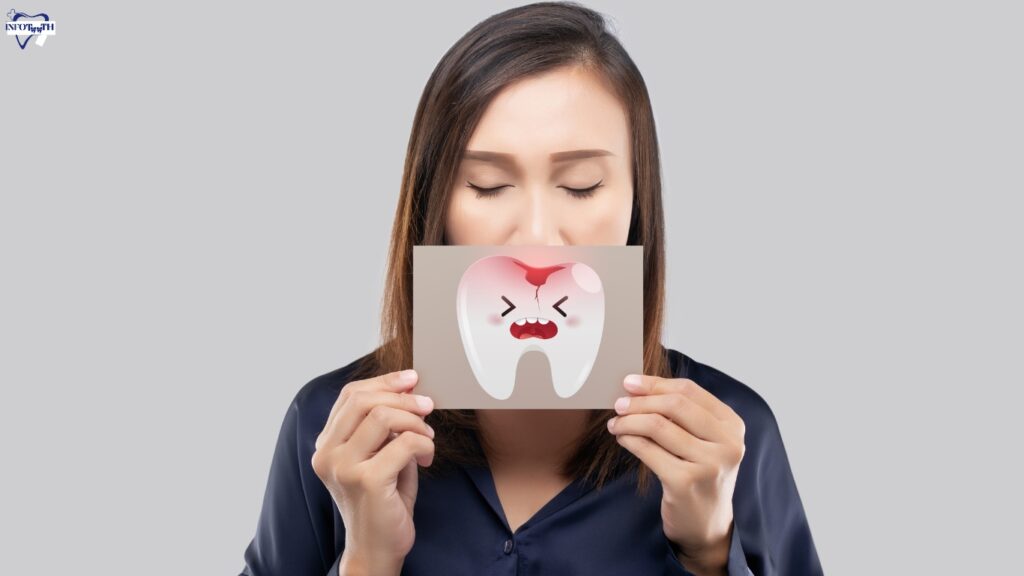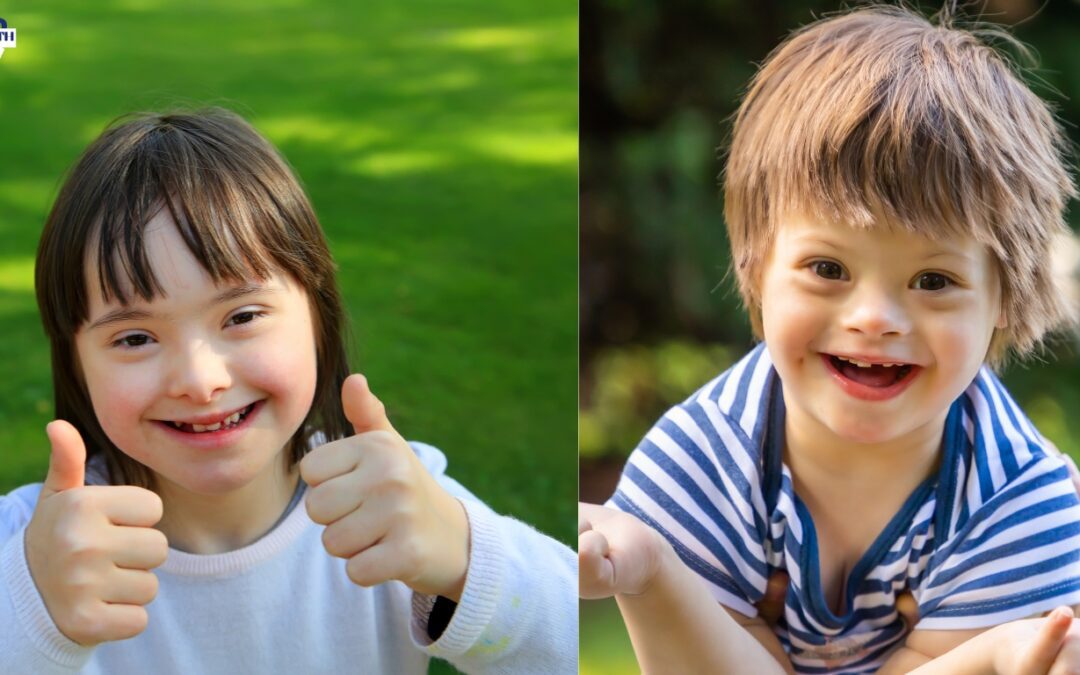A comprehensive comprehension of the effects of Dravet syndrome teeth is necessary to navigate the oral health obstacles it presents effectively. In addition to neurological challenges, Dravet syndrome teeth is an uncommon and severe form of epilepsy that also presents particular oral problems. In this blog, we explore the unique dental difficulties that people with Dravet Syndrome encounter and offer suggestions for practical methods of preserving ideal oral health.
Table of Contents
Learn about the relationship between dental care and Dravet syndrome.
Dravet Syndrome Symptoms
A person with dravet syndrome teeth, a rare and severe form of epilepsy, may experience a variety of symptoms that affect their dental health in addition to its neurological manifestations. With regard to “Dravet syndrome teeth,” in particular, it is important to comprehend the special dental problems connected to this illness.
Teeth development that is delayed or uneven is one of the main signs of oral health issues in Dravet syndrome teeth. Dravet syndrome teeth sufferers frequently have delayed tooth eruption, which increases the risk of misalignments and other orthodontic problems. This delayed dental growth can provide difficulties for caretakers and medical professionals, so it’s important to treat new issues as they arise.

Furthermore, dry mouth may result from the combination of the drugs used to treat Dravet syndrome teeth and the seizures that are a feature of the disorder. This dryness makes tooth decay and gum disease more likely to occur in the mouth. The neurological components of Dravet Syndrome and its effects on dental health are intricately linked. Therefore, caregivers and medical professionals need to be on the lookout for and attentive to these oral health issues.
In summary, comprehending the signs associated with “Dravet syndrome teeth” entails identifying the developmental delays and heightened vulnerability to dental issues that people with Dravet Syndrome may have. This knowledge is essential for putting customized oral care plans into action, such as specially dental products and routine dental examinations, to minimize potential problems and provide the best possible oral health for Dravet Syndrome sufferers.
Causes of Dravet Syndrome Teeth
The rare and severe epilepsy known as Dravet syndrome teeth is closely related to problems with oral health, especially those involving the teeth. Dravet syndrome is mostly caused by a mutation in the SCN1A gene, which results in malfunctioning sodium channels in the brain. Although this mutation mainly causes long-lasting seizures and neurological problems, it also affects other physical health factors, such as dental development.
The developmental delays brought on by the genetic mutation are frequently the root cause of the teeth-related difficulties linked to Dravet syndrome. Dravet syndrome patients frequently have uneven or delayed tooth development, which can lead to misalignment and other dental problems. Moreover, dry mouth can be exacerbated by the seizures and drugs used to treat the illness, making dental issues like tooth decay and gum disease more likely.
Caregivers and medical professionals working with patients with Dravet syndrome must be aware of the specific factors pertaining to dentition. It highlights the necessity for individualized oral care plans that prioritize early intervention and specialist dentistry techniques. By tackling these root causes, people with Dravet Syndrome can take a proactive approach to their oral health and ensure a comprehensive care plan that takes into account both the neurological and dental elements of this complicated disorder.
Oldest Person With Dravet Syndrome Teeth
The effects of Dravet syndrome teeth on an individual’s dental health become more noticeable as they mature. Problems with teeth development, like uneven teeth growth patterns and delayed eruption, continue into adulthood. The complications of Dravet Syndrome are long-lasting, requiring continuous care to maintain dental health and prevent future issues. This is especially true for the eldest patients.

Furthermore, the combination of medication and seizures increases the risk of dental problems such as tooth decay, gum disease, and dry mouth. The elderly with Dravet syndrome require specialized dental care, which requires caregivers and medical professionals to adjust their methods as needed.
Despite the difficulties, many success stories show people with Dravet Syndrome can have good oral health well into old age with proper dental care and commitment. These stories demonstrate the resiliency of the elderly members of the Dravet community in the face of particular dental issues, inspiring optimism and emphasizing the value of ongoing care.
Dravet Syndrome Life Expectancy
People who have Dravet syndrome teeth frequently deal with particular difficulties, and dental health has a big influence on their general wellbeing. A thorough strategy is necessary when taking into account the life expectancy of patients with Dravet Syndrome in connection to their dental health.
Beyond its neurological roots, Dravet Syndrome is a severe and uncommon form of epilepsy that presents unique challenges. Dental disorders, such as delayed tooth development and heightened vulnerability to cavities, can exacerbate the state of poor oral health. Even if dental issues by themselves might not have a direct impact on life expectancy, their combined impact on a person’s overall health emphasizes the significance of preventive dental care.
Healthcare professionals and caregivers are essential in meeting the oral needs of people with Dravet Syndrome. Ensuring a better quality of life for these people requires regular dental checkups, customizing oral hygiene regimens to address unique obstacles, and being up to date on developments in dental treatment for neurological diseases.
Effect of Dravet Syndrome on Teeth
Dravet Syndrome can have significant consequences on dentition, presenting difficulties that go beyond the neurological features of the illness. People who have Dravet syndrome frequently have uneven or delayed tooth development, which affects their dental health. The intricate nature of the illness, which includes protracted seizures and adverse drug reactions, raises the risk of oral issues.
People with Dravet Syndrome frequently have problems with the growth of their teeth, which can result in misalignments and other problems. Furthermore, the condition known as dry mouth, which is frequently brought on by seizures and drugs, increases the likelihood of dental problems like tooth decay and gum disease. Because of this dry atmosphere, saliva’s natural cleansing power is diminished, which fosters oral health problems.

The repercussions are not just physical; there are also notable psychological ramifications. Oral care might become even more complicated for those with Dravet Syndrome because dental visits can cause anxiety. Anxiety can increase the likelihood of dental issues by causing reluctance to follow recommended oral hygiene practices.
A comprehensive strategy is needed to manage teeth affected by Dravet Syndrome effectively. In order to create regular dental checkups, customize approaches to meet the needs of each individual, and build consistent oral care routines, caregivers are essential. Dentists with special needs treatment experience are able to customize suggestions and modify protocols as necessary.
Treatment of Dravet Syndrome Teeth
Because of the syndrome’s complexity and effects on oral health, treating teeth affected by Dravet Syndrome presents particular difficulties. People who have Dravet syndrome are more likely to experience irregular or delayed tooth development, which increases their risk of developing dental issues. An integrated and cooperative approach is necessary to manage the oral component of this condition.
Dental care for people with Dravet syndrome requires specialized techniques to meet their unique requirements. Frequent dental examinations are essential for identifying problems early and facilitating prompt treatment. Dental practitioners with special needs patient treatment experience might modify procedures to guarantee comfort and efficacy.

For dental procedures, sedation or anesthesia may be required in some circumstances. It is crucial to take into account the patient’s general health as well as any unique issues related to Dravet Syndrome in order to guarantee their safety and wellbeing throughout these treatments.
Conclusion
In conclusion, treating teeth with Dravet Syndrome presents special difficulties that need a diversified strategy. Together, caregivers and dental specialists can address issues, including delayed development and heightened vulnerability to oral problems. Individuals with Dravet Syndrome can attain ideal oral health by following customized dental care regimens, scheduling routine examinations, and being aware of specialist products. This all-encompassing approach positively impacts their general wellbeing and quality of life.
FAQs
Q: Is it possible for someone with Dravet Syndrome to receive regular dental care?
A: Even though many people with Dravet Syndrome are able to receive standard dental care, it’s important to work with healthcare practitioners to address unique needs and potential difficulties.
Q: Are there dental products designed specifically for those who have Dravet Syndrome?
A: Absolutely, there are dental solutions specifically made to cater to the peculiar requirements of those who have Dravet Syndrome. These consist of different gadgets, sensory-friendly toothpaste, and toothbrushes.
Q: How can caregivers help patients with Dravet syndrome who are anxious during dental visits?
A: By using desensitization techniques, establishing a comfortable and happy environment, and being upfront and honest with dental experts about any worries, caregivers can help reduce anxiety.
Q: Is research on Dravet Syndrome and oral health ongoing?
A: Indeed, current research endeavors to gain a deeper comprehension of the oral health issues linked to Dravet Syndrome and devise inventive approaches to augment dental treatment for those impacted by the condition.
Q: What part does diet play in the dental health of those who have Dravet syndrome?
A: Oral health is significantly influenced by nutrition. Nutritionists can help caregivers create meal plans that promote general wellbeing while taking into consideration the unique requirements of people with Dravet syndrome.

